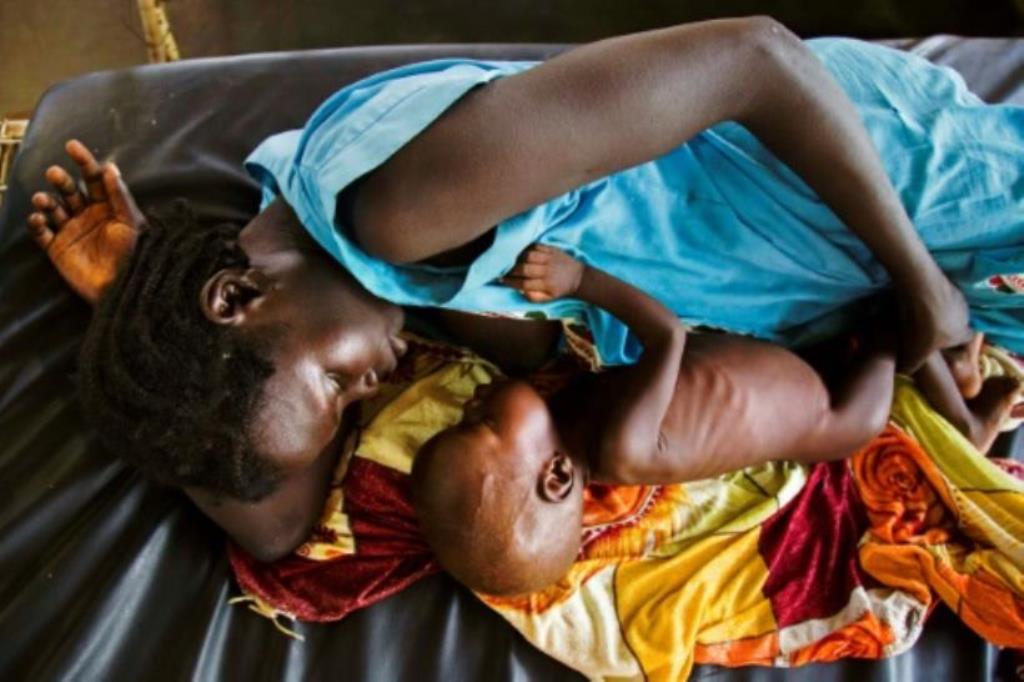London – South Sudan government and three U.N. agencies declared more than 100,000 people in two counties of unity state are experiencing famine. They said the disaster is the result of prolonged civil war and an entrenched economic crisis that has devastated the war-torn East African nation.
An official report from the U.N.’s Food and Agriculture Organization (FAO), the World Food Program (WFP) and UNICEF said there are fears that it will spread as an additional one million South Sudanese are on the brink of starvation.
The agencies warned that more than a million children are suffering from acute malnutrition. They urged that aid be sent to the areas before autumn season arrives and it becomes difficult to reach people.
AFP reported chairman of South Sudan’s National Bureau of Statistics Isaiah Chol Aruai saying that some parts of the northern Greater Unity region “are classified in famine, or… risk of famine”.
“The convergence of evidence shows that the long-term effects of the conflict coupled with high food prices, economic crisis, low agricultural production and depleted livelihood options have resulted in 4.9 million people going hungry,” Aruai said.
Famine is declared in a country where at least 20% of households in an area face extreme food shortages with a limited ability to cope acute, malnutrition rates exceed 30% , and the death rate exceeds two persons per day per 10,000 persons.
U.N. Humanitarian Coordinator for South Sudan Eugene Owusu believes that the main tragedy of the report is that the problem is man-made.
He said conflict and insecurity for humanitarian workers, who had suffered attacks while carrying out their work, and the looting of humanitarian aid aggravated the crisis.
“I would like to use this opportunity to call on the government, the warring parties and all actors to support humanitarians to provide the necessary access so we can continue to bring lifesaving services to those in need,” Owusu said.
FAO’s representative in South Sudan, Serge Tissot stated that many families have exhausted every means they have to survive.
He continued to explain that most people are farmers and war has disrupted agriculture and led them to lose their livestock and farming tools. He even said that those people had been living on whatever plants they can find and fish they can catch for months now.
Earlier, two women starved to death while walking from Kapoeta East County in search of food.
Kapoeta State governor Louis Lobong said that the women were among hundreds fleeing severe hunger in the state towards Uganda. He explained that the area has had no rain in recent months and so the local people were unable to cultivate enough food.
Lobong added that the residents migrate to neighboring states or countries such as Kenya and Uganda.
“The pastoral communities have gone far, crossing over to either the neighboring states or the neighboring countries because they are vulnerable, hungry, and weak,” the Governor said.
Lobong appealed to humanitarian agencies to provide assistance to the people in the state especially the Imatong authorities to provide security on the road to Kapoeta to enable the transportation of food from Torit.
